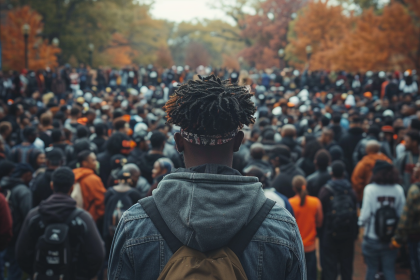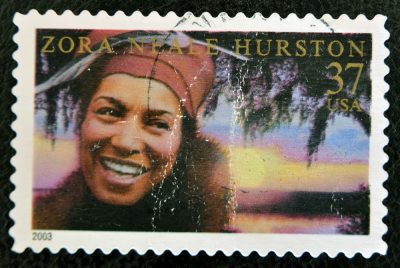Travel represents more than geographical movement for African Americans seeking connections to their heritage. By visiting cultural and historical landmarks, travelers gain deeper understanding of the narratives that have shaped Black identity in America while creating economic opportunities for communities. This journey through historically significant sites offers transformative experiences that combine education, cultural appreciation and personal growth.
The transformative power of heritage exploration
Travel focused on African American culture provides opportunities for profound personal connections that textbooks alone cannot deliver. When visitors walk through historical spaces where significant events unfolded, abstract concepts transform into tangible realities.
The National Museum of African American History and Culture in Washington, D.C. stands as the most comprehensive institution dedicated to preserving Black American experiences. Its chronological approach guides visitors from the horrors of the Middle Passage through slavery, Reconstruction, Jim Crow, Civil Rights and contemporary achievements. The museum attracted over 2.5 million visitors in 2019 alone, demonstrating the significant interest in African American historical narratives.
Birmingham Civil Rights Institute in Alabama offers immersive exhibits documenting the pivotal role the city played during the 1960s Civil Rights Movement. Here, visitors can stand mere feet from the jail cell where Martin Luther King Jr. penned his famous “Letter from Birmingham Jail” and explore artifacts from watershed moments that transformed American society.
Cultural capitals that shaped Black American identity
Harlem remains an essential destination for understanding the cultural renaissance that redefined Black artistic expression in the early 20th century. The neighborhood’s Apollo Theater launched countless musical careers and continues hosting Amateur Night, a tradition spanning nearly 90 years.
Visitors can explore the Studio Museum’s collection of contemporary works by artists of African descent before dining at historic establishments like Sylvia’s Restaurant, serving soul food classics since 1962. The Schomburg Center for Research in Black Culture houses over 11 million items documenting Black experiences worldwide.
The French Quarter of New Orleans reveals deep connections between African traditions and American culture. Congo Square marks the site where enslaved people gathered on Sundays to maintain cultural practices through music and dance, laying foundations for jazz. The city’s multicultural heritage appears throughout its architecture, cuisine and celebrations, particularly during Mardi Gras when Black masking traditions of the Mardi Gras Indians display intricate handcrafted suits requiring thousands of hours of beadwork.
Historical sites that changed American society
Atlanta earned its reputation as the cradle of civil rights leadership through institutions like Morehouse College and community activism that nurtured leaders including Martin Luther King Jr. The King National Historical Park encompasses his childhood home, Ebenezer Baptist Church where three generations of his family preached, and his final resting place.
The National Center for Civil and Human Rights connects historical struggles with contemporary human rights issues through interactive exhibits. Nearby, the Atlanta University Center houses the largest consortium of historically Black colleges and universities, including Spelman College, which holds significant art collections and historical archives.
Memphis contains the sobering National Civil Rights Museum built around the Lorraine Motel where King was assassinated in 1968. The preserved Room 306 stands as it appeared on April 4, 1968, creating a powerful memorial. Visitors can also explore Beale Street, the musical thoroughfare where blues pioneers like B.B. King and Memphis Minnie performed, establishing sounds that would influence American music for generations.
Economic empowerment through intentional travel
Supporting Black-owned businesses creates meaningful economic impact in communities across America. Travel app EatOkra helps visitors locate over 13,000 Black-owned restaurants nationwide, while platforms like Nomadness Travel Tribe connect African American travelers with Black-owned accommodations and tour operators.
Akwaaba Bed and Breakfast Inns operate luxury accommodations in Philadelphia, Washington D.C., Brooklyn and Cape May, offering culturally authentic experiences while preserving historic properties. Founded by former magazine editor Monique Greenwood, these properties represent successful Black entrepreneurship in the hospitality sector.
Black-owned bookstores like Mahogany Books in Washington D.C., Marcus Books in Oakland and Semicolon in Chicago serve as cultural anchors offering literature by Black authors alongside community programming. These spaces frequently host author events, book clubs and educational workshops that enrich the travel experience beyond typical tourist activities.
Planning meaningful cultural experiences
Effective heritage exploration requires thoughtful preparation to maximize educational opportunities. Researchers at the Association for the Study of African American Life and History recommend allocating sufficient time at each location rather than rushing between multiple sites, allowing for reflection and deeper understanding.
Digital resources make research easier than ever before. The National Park Service offers comprehensive guides to sites on the National Register of Historic Places connected to African American heritage. Mobile applications like History In Your Hands provide self-guided tours of significant locations tailored to specific interests.
Timing trips around cultural festivals and commemorations enhances travel experiences. The Essence Festival in New Orleans, Juneteenth celebrations nationwide and state Black arts festivals offer concentrated opportunities to engage with contemporary expressions of African American culture while interacting with community members.
Documenting journeys for future generations
Travel documentation serves both personal reflection and community inspiration. The Black Travel Alliance encourages travelers to share experiences through social media, creating visibility for destinations that might otherwise remain overlooked by mainstream tourism marketing.
Photography preserves meaningful moments while creating visual records of cultural landmarks that continue evolving. Many heritage sites now face preservation challenges, making visitor documentation increasingly valuable for historical record.
Journal keeping provides space for processing emotional responses to difficult historical material. Many travelers report profound reactions when confronting sites of trauma like former plantations or lynching memorials, requiring intentional reflection to process complex feelings about American history.
The global African diaspora connection
African American travelers increasingly explore connections throughout the global diaspora. Ghana’s “Year of Return” initiative attracted thousands of visitors tracing ancestral connections, while destinations like Salvador, Brazil and Cartagena, Colombia offer insights into parallel histories of enslavement and resistance throughout the Americas.
These international journeys highlight cultural retentions across geographical boundaries, demonstrating how African traditions transformed and persisted despite historical attempts at erasure. Language patterns, cuisine, religious practices and artistic expressions reveal remarkable continuity across continents.
For many travelers, these global explorations provide context for understanding African American experiences within broader historical patterns. Museums like the International Slavery Museum in Liverpool and the Maison des Esclaves in Senegal offer complementary perspectives on the transatlantic experiences that shaped Black identity in America.
As interest in heritage tourism continues growing, these journeys through African American historical and cultural landmarks offer transformative experiences that connect past struggles with contemporary identity. By intentionally supporting Black businesses and cultural institutions, travelers contribute to community development while gaining deeper appreciation for the resilience, creativity and profound contributions of African Americans to global culture.

















